It can be frustrating for your Ruud air conditioner to act up and not turn on. What could cause this problem, and is it something you can fix? Let's first take a look at the possible culprits of this problem.
If your Ruud air conditioner doesn't turn on, it could be due to the following:
- Needs A Reset
- Wrong Thermostat Setting
- Dirty Air Filter
- Low Refrigerant
- Old Age
- Wrong AC Size
- Frozen Evaporator Coil
- Tripped Breaker
- Electrical Issue
- Faulty Condenser
- Thermostat Issue
- Clogged Drain Line
- Failed AC Motor
- Bad AC Capacitor
It can be overwhelming to figure out why your A/C unit isn't turning on. In this article, we will look at each of these problems and hopefully provide the warning signs you need to diagnose the issue. We will also answer other frequently asked questions about Ruud air conditioners, so read on!
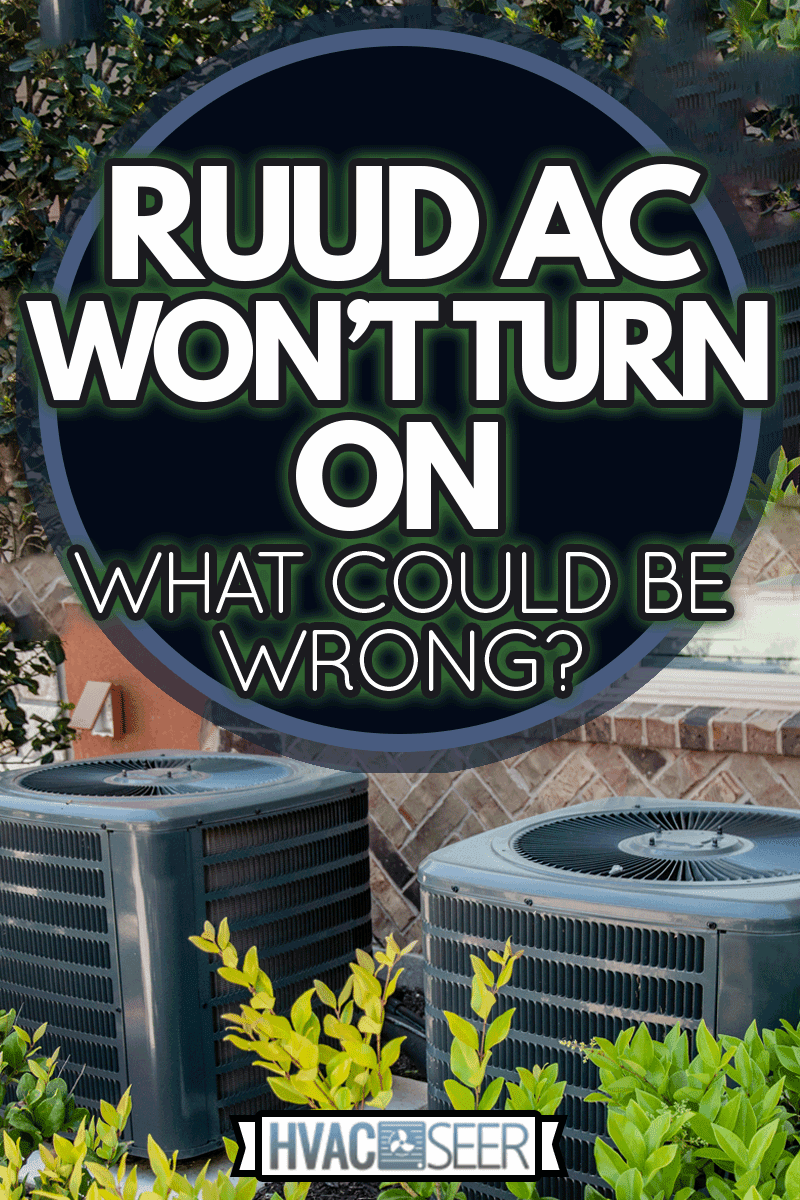
Why Won't My Ruud Air Conditioner Turn On?
Most people don't realize it, but air conditioners work by transferring heat from the inside of a home to the outside. This is done by using a refrigerant that goes through several coils.
The compressor unit turns on when the AC is turned on and pushes the refrigerant through the coils. The fan then blows air over the coils, and the heat is transferred outside.
As the refrigerant starts to warm up, it goes back to the compressor unit, and the process starts over again. However, if something goes wrong during this process, the compressor won't turn on, and the air conditioner will not work.
There are common problems that you may be able to diagnose yourself, but some issues may require a professional. We will go over the most common problems why your Ruud air conditioning unit isn't turning on below.
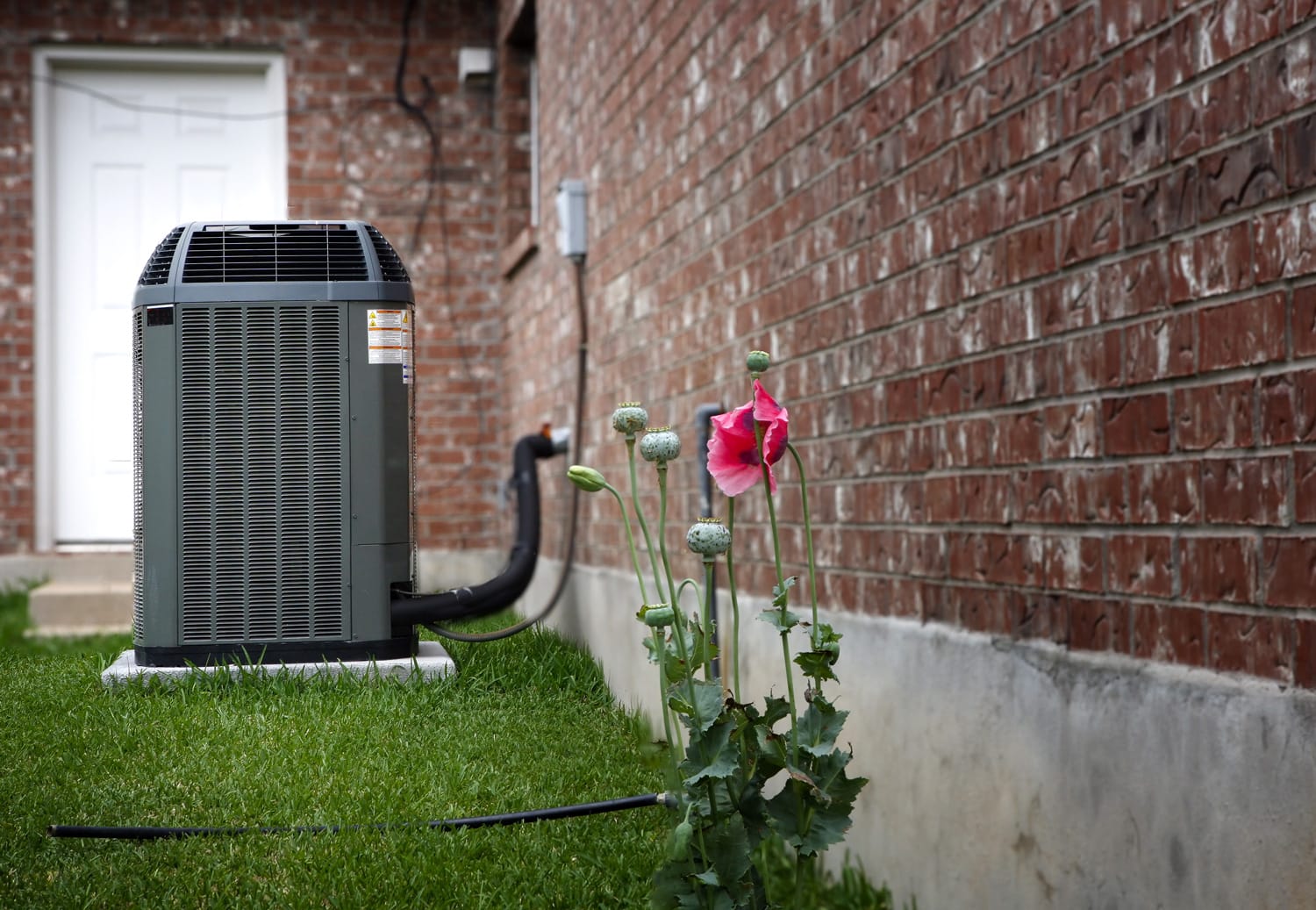
Needs A Reset
One of the first things you should check is to see if the AC needs a reset. Next, check your owner's manual to see if your model has a reset button.
If it does, press and hold the button for about 10 seconds until the AC unit turns off. Once it turns off, release the button and wait about 5 minutes before trying to turn it back on.
If the system doesn't have a reset button or you can't find it, you can reset the system manually. To do this, follow these steps:
- Turn off the thermostat.
- Turn off the breaker that powers the unit.
- Wait 30 seconds and turn the breaker back on.
- Finally, turn the thermostat back on.
Wrong Thermostat Setting
If you are lucky, your thermostat may be set to the wrong temperature. For example, the AC unit will not turn on if the thermostat is set too high.
To fix this, set the thermostat to a cooler temperature and wait for the AC unit to turn on.
Dirty Air Filter
The air filter plays a vital role in your AC unit by preventing dust and dirt from getting into the system. If the filter is dirty, it will cause the unit to work harder and lead to other problems.
You should clean your air filter every month and replace it every 90 days to 6 months, depending on the type of air filter.
Low Refrigerant
If the refrigerant is low, it can cause the compressor not to turn on. A refrigerant leak could also cause this, so check your unit for leaks.
The best way to tell if the refrigerant is low is to check the pressure. However, if you aren't comfortable checking the refrigerant yourself, you should call a professional.
AC refrigerant is toxic and flammable, so it is better to be safe than sorry.
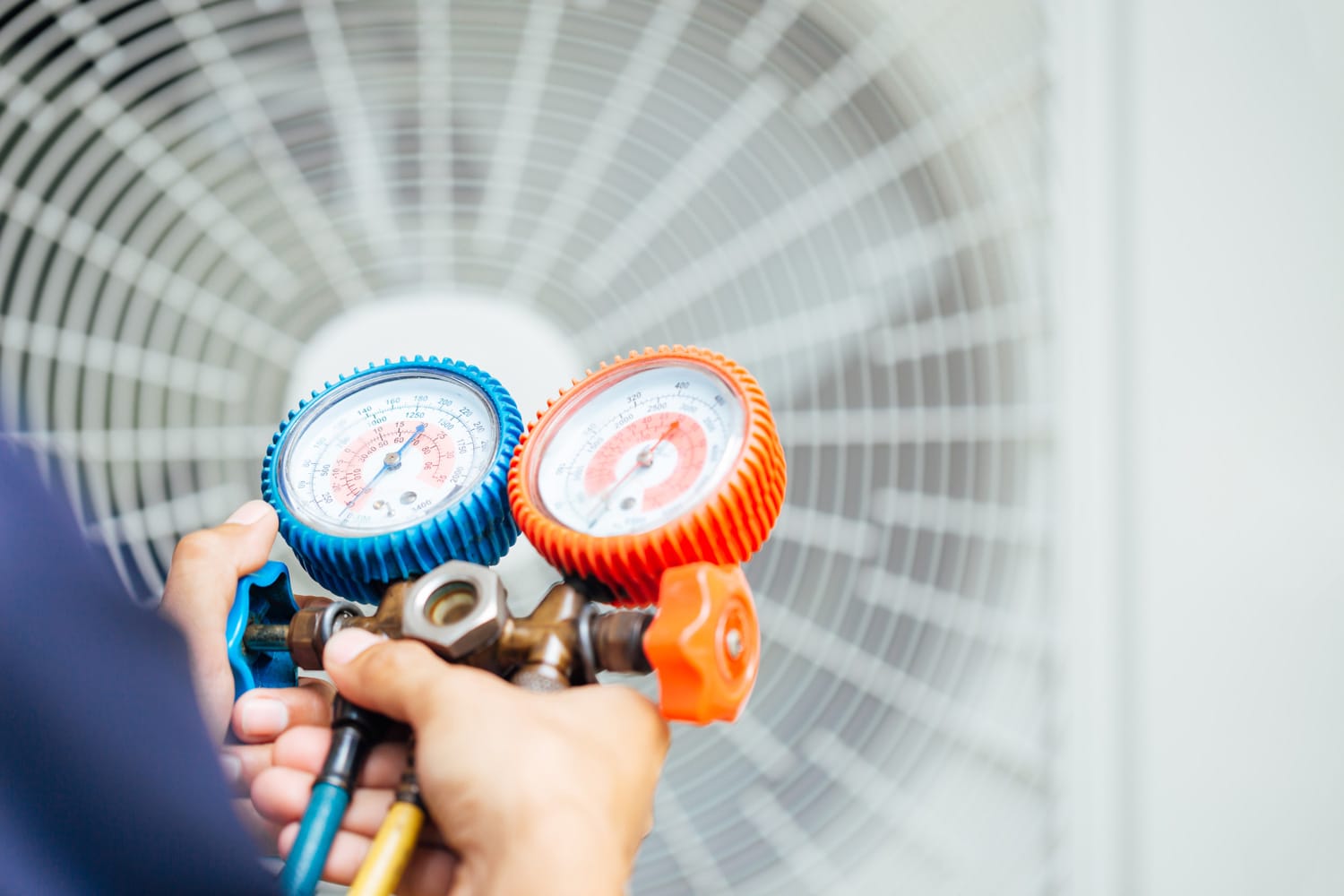
Old Age
All air conditioners have a life span and eventually need to be replaced. For example, if your Ruud air conditioner is over ten years old, it may be time to consider a replacement.
Wrong AC Size
If your AC is too small for your home, it won't be able to keep up with the cooling demands and will not turn on. As a result, the unit will work overtime, causing it to overheat, trip the breaker, or even cause damage to the unit.
Frozen Evaporator Coil
If the evaporator coil ices over, it will cause the AC unit not to turn on. Turn the unit off and give it a chance to thaw (24 hours). The ice will eventually melt, and the AC will turn back on, but this can be a sign of a problem with the unit.
To prevent the coil from freezing over, you should ensure enough airflow around the unit. You can do this by ensuring that the surrounding area is free from obstructions and cleaning the coil every year.
Tripped Breaker
If the breaker trips, it will cause the AC unit not to turn on. Check the breaker box to see if any of the breakers are tripped. If they are, reset them by turning them off and then back on.
Electrical Issue
If you have ruled out all of the above problems and your AC still doesn't work, there may be an electrical issue. Like refrigerants, electrical issues are best left to the professionals.
You can still check the control board to check for a sign of an electrical issue. To do this, turn off the thermostat and unplug the unit. Once it is unplugged, remove the front cover of the control board.
Once you have removed the cover, look for any burnt or damaged components.
Faulty Condenser
If the condenser is faulty, it will cause the AC unit not to turn on. The condenser is located outside of your home and is responsible for cooling the refrigerant.
If you hear a humming noise coming from the condenser, it is a sign that it is not working correctly.
Thermostat Issue
It is possible that the thermostat is not working correctly and is preventing the AC unit from turning on. Turn off the thermostat and wait for the AC unit to turn off to test this.
You may also need to change the batteries in the thermostat.
Clogged Drain Line
If the drain line is clogged, it will cause the AC unit not to turn on. To fix this, clear the drain line of any debris or obstructions. Then pour 1/4 cup of vinegar down the drain to help dissolve any build-up.
Failed AC Motor
If you hear rattling, humming, or grinding noises coming from the AC unit, it is most likely a sign that the motor has failed.
At this point, you will need to replace the motor. This can be done by a professional or by purchasing the replacement motor and doing it yourself.
Bad AC Capacitor
An AC capacitor is responsible for starting and running the AC motor. If the capacitor is bad, it could make a humming noise, increase energy bills, or cause warm air to blow through your vents.
At this point, you will need to replace the capacitor. This can be done by a professional or by purchasing the replacement capacitor and doing it yourself.
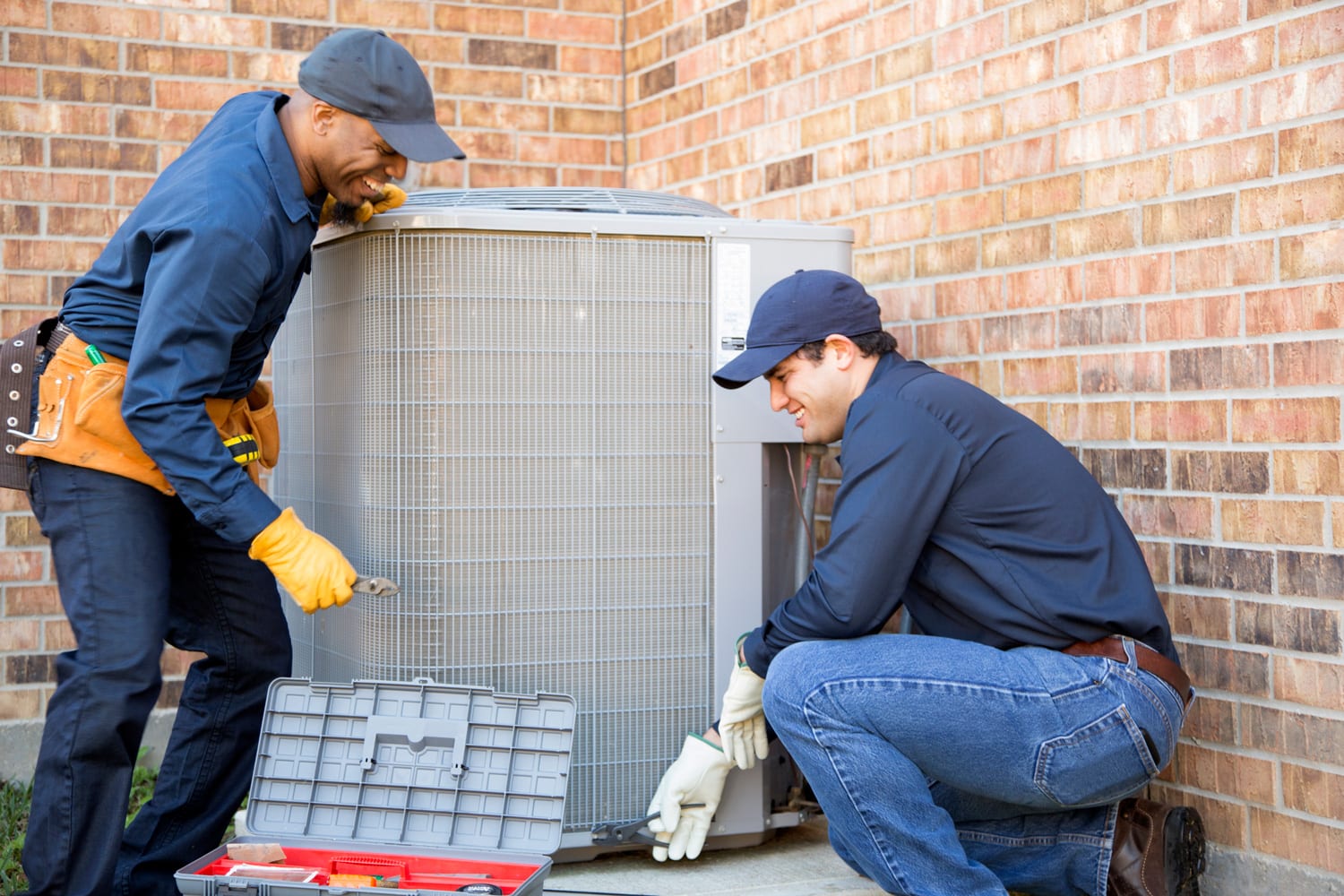
How Long Do Ruud Air Conditioners Last?
The lifespan of a Ruud air conditioner can vary depending on the model. However, most Ruud air conditioners will last about 10-15 years.
Keep in mind that this depends on how often the unit is used and how well it is taken care of. You should have it serviced every year to get the most out of your unit.
In addition, check your air filters every month and replace them as recommended by Ruud. If you have pets, you will need to replace the filters more often.
How Do I Know When It's Time To Replace My Ruud AC?
If your Ruud air conditioner is more than ten years old, it may be time to replace it. However, this isn't the only warning sign.
Abnormal Energy Bills
If you find that your energy bills are skyrocketing, it is a sign that your AC unit is not working properly. Over time, the parts of the unit will wear down, and it will require more energy to run.
A new air conditioning unit isn't inexpensive, but it will save you money in the long run. Energy-efficient air conditioners can be up to 40% more efficient than older models.
Frequent Repairs
If your unit is older and it seems like it constantly needs repairs, it is probably time for a replacement. However, instead of putting money into repairs, you could put that money towards a new unit that will last for years.
Unit Uses R22-Freon
If your AC unit uses R22-Freon, it is most likely a sign that it is time for a replacement. This type of Freon is being phased out because it is harmful to the environment.
If you aren't sure what type of Freon your unit uses, you can check the sticker on the side of the unit or contact a professional.
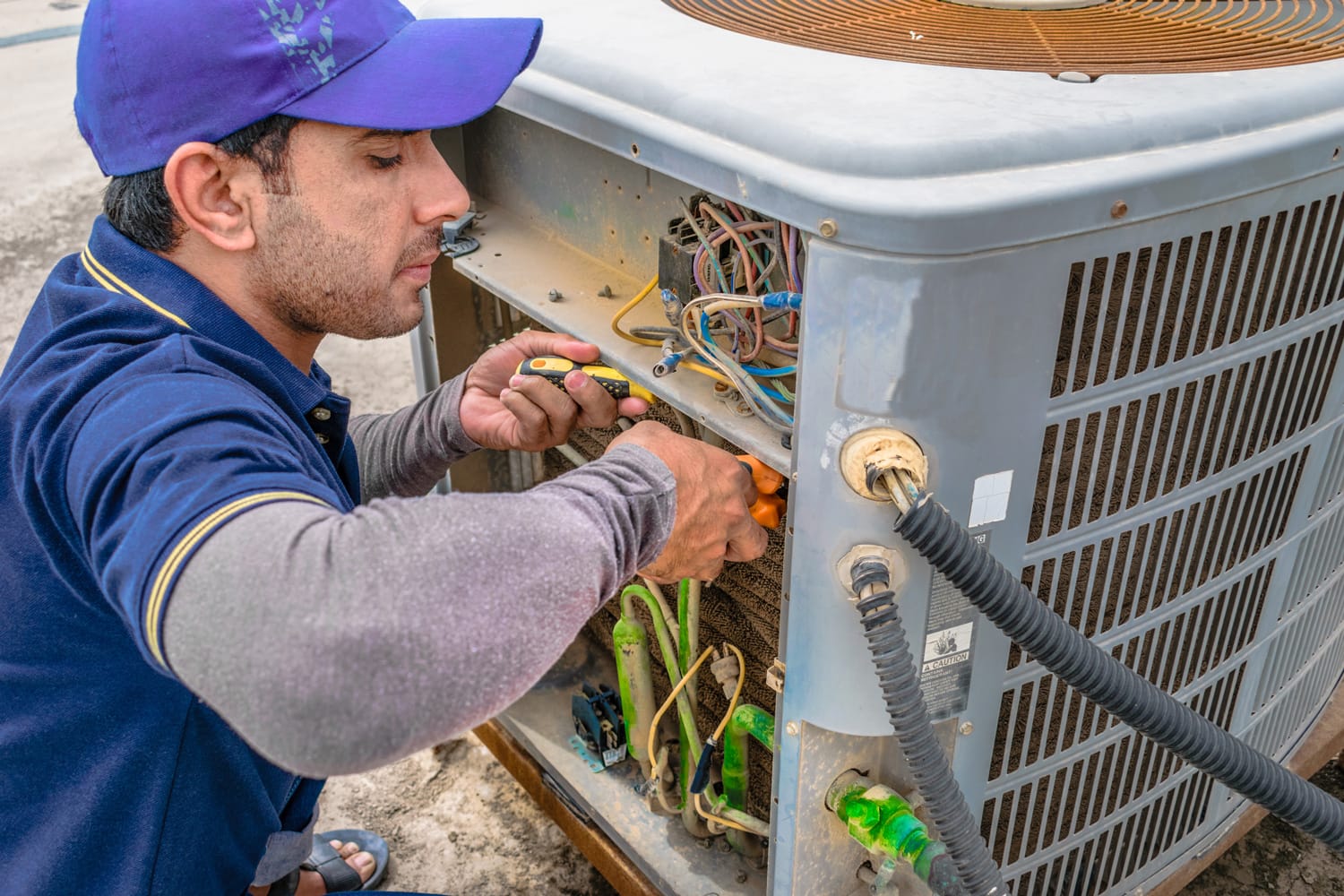
To Wrap It Up
Not every issue with your AC unit means that you need to replace it. However, if your Ruud air conditioner is over ten years old, has abnormal energy bills, frequent repairs, or uses R22-Freon, it is probably time for a replacement.
Replacing your AC unit can be expensive, but it is an investment that will save you money in the long run.
Need more AC troubleshooting tips? Here are some other articles from our blog that may help:
Trane Air Conditioner Not Removing Humidity – What To Do?
